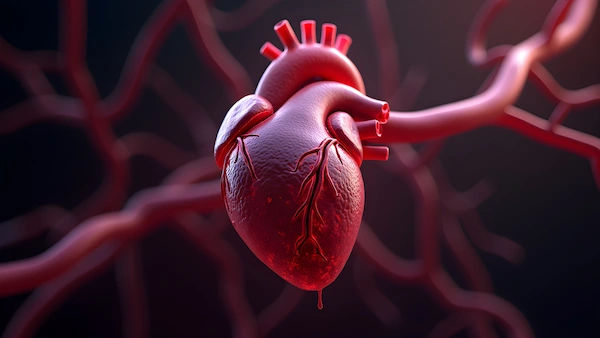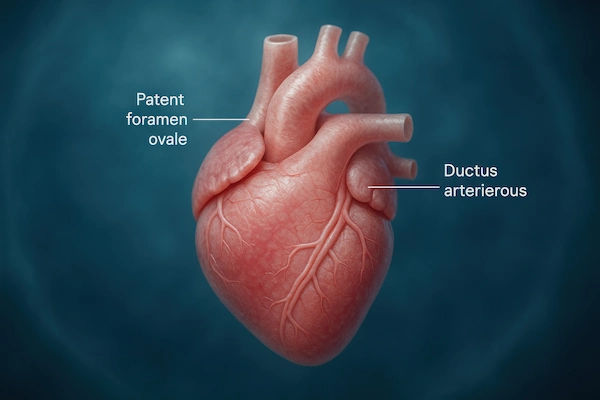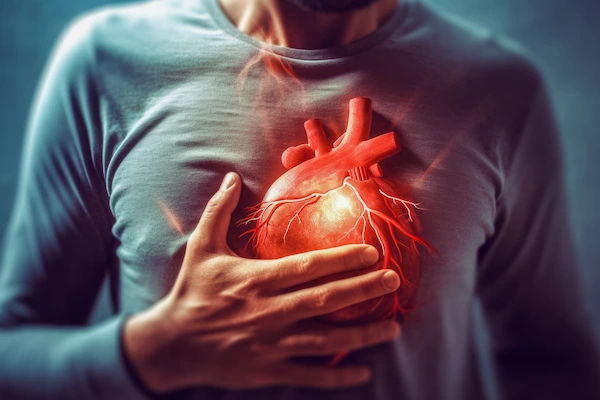- female
- 40 Years
- 22/01/2025
I've been having this chest pain that comes and goes for the past few days. It's mostly on the left side, near the center of my chest, and sometimes my breast hurts too, but they look normal. I also had this back pain between my spine and shoulder blade on the left side, but that went away, and the chest pain came back. It feels worse when I get up, like when you have an injury and start moving after resting. Any idea what could be causing this?
Answered by 1 Apollo Doctors
Possible Diagnosis*
- Costochondritis: Inflammation of the cartilage connecting ribs to the breastbone, causing left-sided chest pain.
- Musculoskeletal strain: Strained muscles in the chest or back, leading to pain and discomfort.
- Gastroesophageal reflux disease (GERD): Stomach acid flowing back up into the esophagus, causing chest pain and discomfort.
Treatment Options
- Pain management: Over-the-counter pain relievers like acetaminophen or ibuprofen to alleviate pain and discomfort.
- Heat or cold therapy: Applying heat or cold packs to the affected area to reduce pain and inflammation.
- Muscle relaxants: Medications like cyclobenzaprine to relax muscles and reduce pain.
- Antacids or acid reducers: Medications like ranitidine or omeprazole to alleviate GERD symptoms.
Advice
- Rest and relaxation: Avoid heavy lifting, bending, or strenuous activities that may exacerbate the pain.
- Maintain good posture: Avoid slouching or bending, which can put strain on your muscles and exacerbate the pain.
- Avoid triggers: Identify and avoid triggers that may worsen GERD symptoms, such as citrus fruits, tomatoes, or spicy foods.
- Monitor your symptoms: Keep track of your symptoms, including when they occur, how long they last, and any factors that trigger or relieve them.
Dr. Dr Khaleel Suggests...
Consult a Cardiologist
Answered 04/07/2025
0
0

More Cardiology Health Queries
View allI've been experiencing this right lower chest pain every time I jog for about 5 to 10 minutes, and it's starting to worry me. I'm not sure why it keeps happening. Should I be concerned about this, or is it something that usually happens and might go away on its own?
do pulmonary function test
Answered by 1 Apollo Doctors
I'm a bit worried because my doctor said it's palpitation and my ECG came back normal. At the time, my heart rate was around 100 bpm, and they prescribed me medicine for 10 days. Now it's the fourth day, and I'm noticing my heart rate is sometimes above 100 or in the 90s, but when I wake up, it's around 80 or 78, and at night it's between 67 and 72 when I'm resting. How long do you think it'll take for my heart rate to stabilize back to normal? It's above 90 and sometimes even over 100 in the afternoon before it calms down.
The medication prescribed by your doctor is likely a beta-blocker such as Metoprolol. The usual dosage for heart palpitations is around 25-50mg twice daily. It may take a few weeks for the medication to fully regulate your heart rate. It is important to continue taking the medication as prescribed and follow up with your doctor for any concerns or adjustments to the treatment plan.
Answered by 1 Apollo Doctors
I'm dealing with mild MVP and my MREF is at 60 percent. I've got a lot of anxiety and my stomach's frequently upset. Occasionally, I get palpitations, especially when I'm stressed out. What can I do to get rid of these symptoms?
based on your symptoms of mild mitral valve prolapse (MVP) with grade 1 mitral regurgitation (MR), anxiety, stomach upset, palpitations, and increased anxiety in stressful situations, I recommend the following treatment plan: 1. For anxiety, you can take a selective serotonin reuptake inhibitor (SSRI) like Sertraline 50mg once daily. 2. For palpitations, you can take a beta-blocker like Metoprolol 25mg once daily. 3. For stomach upset, you can take an antacid like Omeprazole 20mg once daily before breakfast. 4. Practice stress-reducing techniques such as deep breathing exercises, meditation, or yoga. 5. Avoid caffeine, alcohol, and tobacco as they can worsen anxiety and palpitations. 6. Follow up with your doctor regularly to monitor your symptoms and adjust treatment as needed. I hope this treatment plan helps alleviate your symptoms
Answered by 1 Apollo Doctors
Disclaimer: Answers on Apollo 247 are not intended to replace your doctor advice. Always seek help of a professional doctor in case of an medical emergency or ailment.


_2.webp)


